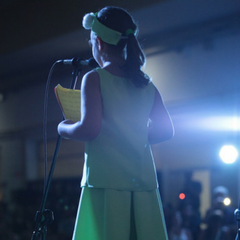
Activities for children with cerebral palsy
It is natural for children to have a desire to play and engage in new, exciting activities. Doing so can improve the cognitive, physical, social and emotional well-being of children. But playtime can introduce some real obstacles for children with cerebral palsy. This does not mean they have to miss out on such a fundamental part of growing up. There are many interesting activities for children with cerebral palsy to take part in, but here are a few of our favourites.
Sport
Organisations like Cerebral Palsy Sport, are on a mission to make sport accessible to children with cerebral palsy. Playing sports can improve fitness and muscle strength. It can also encourage teamwork, confidence, respect, and self-esteem in children. Most importantly, it can be fun!
 Even casual meetings at the local park can be a great way for your children to do sports, have fun and make friends. It may also be a good way for parents to expand their social networks. And who knows, maybe they will go from playing in the local park to the Olympic park.There are disability sports teams throughout the UK and you can find your nearest one with Parasport’s online search tool. These teams offer athletics, bowls, football/frame football, swimming, and gymnastics, to name a few. But, engaging in sports doesn’t always have to be through formal organisations. Non-competitive sports can also be rewarding.
Even casual meetings at the local park can be a great way for your children to do sports, have fun and make friends. It may also be a good way for parents to expand their social networks. And who knows, maybe they will go from playing in the local park to the Olympic park.There are disability sports teams throughout the UK and you can find your nearest one with Parasport’s online search tool. These teams offer athletics, bowls, football/frame football, swimming, and gymnastics, to name a few. But, engaging in sports doesn’t always have to be through formal organisations. Non-competitive sports can also be rewarding.
Music
The presence of music in our daily lives is so commonplace. Yet the huge variety of sounds, genres and artists can make the musical experience a very personal one. Music is important for self-expression. It can play a huge role in the formation of personal identity, especially in the teenage years. By exploring music, children with cerebral palsy can learn a lot about themselves. It may also help them relate to others with similar interests.

Children with cerebral palsy could find learning to play an instrument beneficial. Researchers say it may improve children's hand movement and sensorimotor skills. But not all musical activities need to involve playing instruments. For children with a wider range of movement, there is dancing. If movement is more limited, they can learn the words to songs, sing, or just listen. These activities can reduce stress and aid learning.
Creativity and Performing arts
 There are many talented people with cerebral palsy and your child could be one of them. There are actors like RJ Mitte, comedians like Josh Blue, artists like Dan Keplinger and writers like Christy Brown. Children with cerebral palsy may find any of these creative activities gratifying. If a child struggles with verbal expression, art can provide a useful, non-verbal method for them to express themselves. It can also boost self-esteem, knowing that they could discover a hidden talent or perform for a crowd.
There are many talented people with cerebral palsy and your child could be one of them. There are actors like RJ Mitte, comedians like Josh Blue, artists like Dan Keplinger and writers like Christy Brown. Children with cerebral palsy may find any of these creative activities gratifying. If a child struggles with verbal expression, art can provide a useful, non-verbal method for them to express themselves. It can also boost self-esteem, knowing that they could discover a hidden talent or perform for a crowd.
These are just some of the activities for children with cerebral palsy that you can introduce to your little one today. Some children may not want or be able to participate in these activities. But watching and listening are as important to sports, music, and art as is the taking part. Some children may even prefer this. What’s your child's favourite pastime? We’d love to hear from you. For more helpful hints and tips, stay updated on our blogs page: https://specialkids.company/blogs/latest-news

